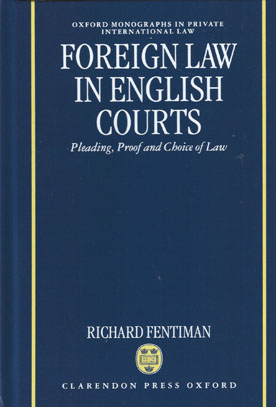
The pleading and proof of foreign law are often treated as atters of peripheral importance. But, in reality, how foreign law is established, and whether is must be established at all, are central issues in private international law.
Whether litigants are free to ignore the foreign elements in a dispute goes to the heart of the conflicts process, and without effective means to establish foreign law the very purpose of that process is subverted.
Such issues give rise to particular problems in English law. It is often unclear whether the rules for choice of law are mandatory, and whether the application of foreign law is therefore required. The cost and uncertainty of establishing foreign law may also affect how cases are argued and decided, and may discourage litigants from suing at all.
This book, the first to examine the topic from the perspective of English law, offers a radical reappraisal of a long-neglected subject. Fentiman argues that the law is both more complex, and more defensible, than had previously been supposed.
He provides a practical guide to the subject and in so doing presents the conflict of laws in a way which is both novel and illuminating. The book will be recognised by practitioners and scholars alike as a welcome addition to the series of Oxford Monographs in Private International Law.